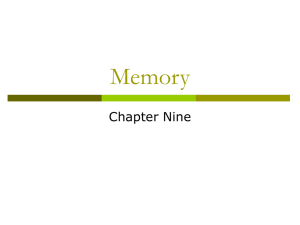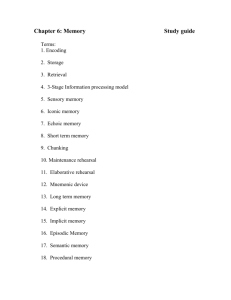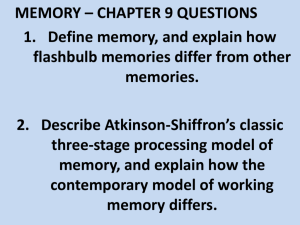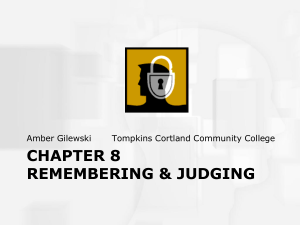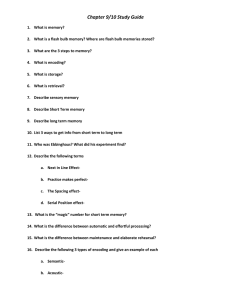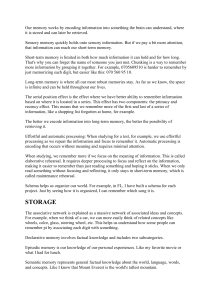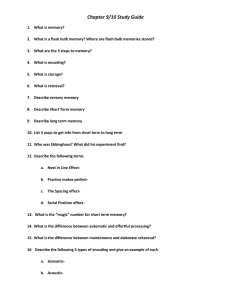Psychology Memory Study Guide: Chapter 9 Review
advertisement
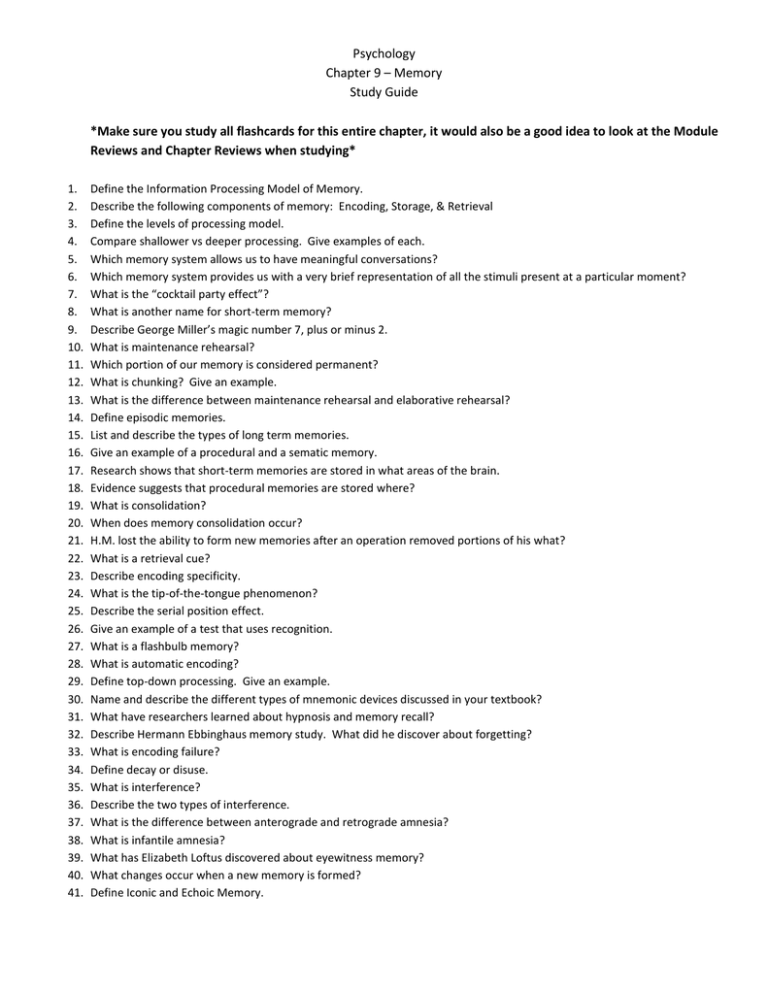
Psychology Chapter 9 – Memory Study Guide *Make sure you study all flashcards for this entire chapter, it would also be a good idea to look at the Module Reviews and Chapter Reviews when studying* 1. 2. 3. 4. 5. 6. 7. 8. 9. 10. 11. 12. 13. 14. 15. 16. 17. 18. 19. 20. 21. 22. 23. 24. 25. 26. 27. 28. 29. 30. 31. 32. 33. 34. 35. 36. 37. 38. 39. 40. 41. Define the Information Processing Model of Memory. Describe the following components of memory: Encoding, Storage, & Retrieval Define the levels of processing model. Compare shallower vs deeper processing. Give examples of each. Which memory system allows us to have meaningful conversations? Which memory system provides us with a very brief representation of all the stimuli present at a particular moment? What is the “cocktail party effect”? What is another name for short-term memory? Describe George Miller’s magic number 7, plus or minus 2. What is maintenance rehearsal? Which portion of our memory is considered permanent? What is chunking? Give an example. What is the difference between maintenance rehearsal and elaborative rehearsal? Define episodic memories. List and describe the types of long term memories. Give an example of a procedural and a sematic memory. Research shows that short-term memories are stored in what areas of the brain. Evidence suggests that procedural memories are stored where? What is consolidation? When does memory consolidation occur? H.M. lost the ability to form new memories after an operation removed portions of his what? What is a retrieval cue? Describe encoding specificity. What is the tip-of-the-tongue phenomenon? Describe the serial position effect. Give an example of a test that uses recognition. What is a flashbulb memory? What is automatic encoding? Define top-down processing. Give an example. Name and describe the different types of mnemonic devices discussed in your textbook? What have researchers learned about hypnosis and memory recall? Describe Hermann Ebbinghaus memory study. What did he discover about forgetting? What is encoding failure? Define decay or disuse. What is interference? Describe the two types of interference. What is the difference between anterograde and retrograde amnesia? What is infantile amnesia? What has Elizabeth Loftus discovered about eyewitness memory? What changes occur when a new memory is formed? Define Iconic and Echoic Memory.

